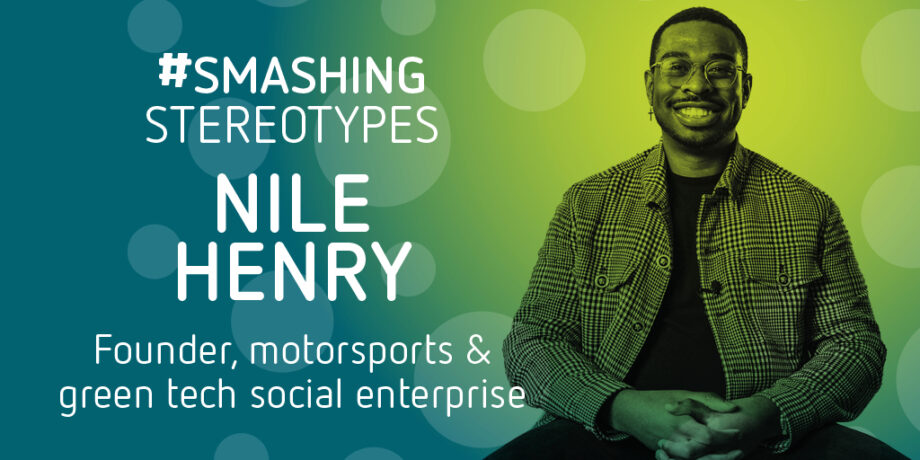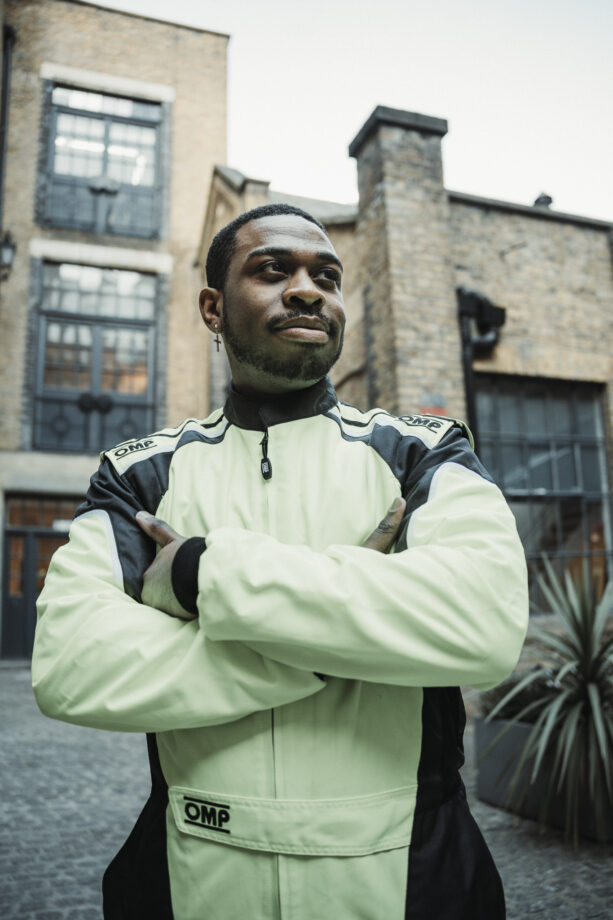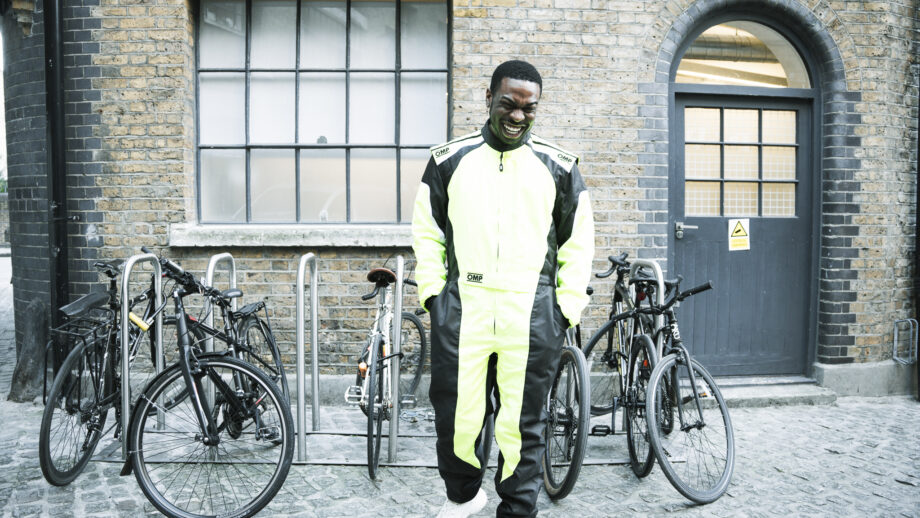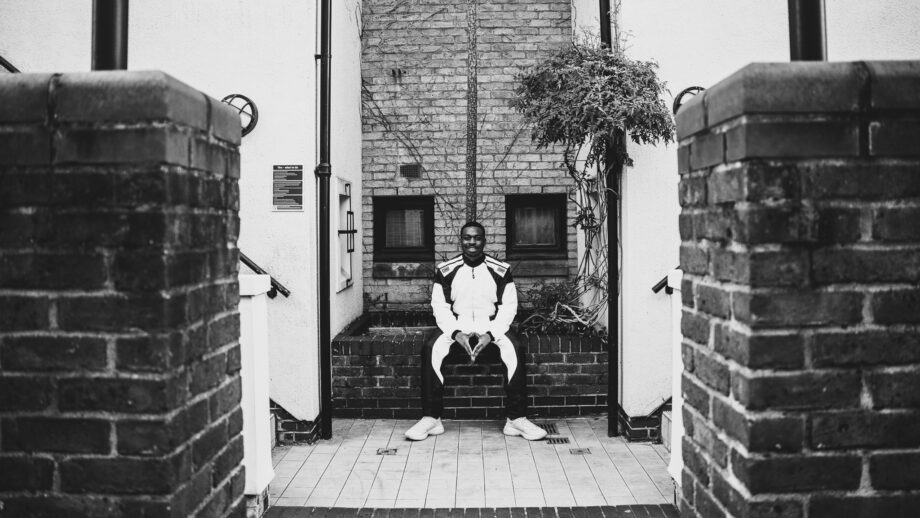
Nile Henry
Founder, motorsports & green tech social enterprise
Founder and CEO, The Blair Project
Supporting the next generation of trailblazers in motorsport
Nile Henry is the CEO and founder of The Blair Project, a social enterprise that empowers young people by teaching them about motorsports and enhancing their STEM skills through activities like product design, 3D printing, and go-karting.
My early entrepreneurial roots
As a kid I often daydreamed in class, thinking about travelling the world and making enough money to achieve that dream. I began selling sweets and drinks on the school playground, and I was always thinking of ways to expand my inventory. You could say that my playground hustle exposed me to valuable business lessons early on.
I can’t help but also attribute this drive to my mother, who herself ran successful businesses. Her entrepreneurial spirit had always been a part of me, and I was always determined to turn my dreams into reality.
My younger brother Blair was a professional go-kart racer, and he’s the inspiration behind what I do now. Funding his racing career was tough as motorsport is such an expensive hobby. The financial pressure means that only the wealthy have a realistic shot at becoming professional drivers.
To give you an idea, a single season of go-kart racing can cost anywhere from £30,000 to £120,000 a year, while making the leap to single-seater racing demands an investment ranging from £150,000 to £350,000. If you have a family member or friend with mechanical skills it definitely cuts costs, but most families need to hire race mechanics which is pretty expensive.
From software development to social impact
Traditional education never quite resonated with me. Although I studied software development in college, my dream was to work for a gaming studio, a passion that stemmed from my childhood love for video games. My journey took an unexpected twist when I decided to take a gap year to explore America and Australia, envisioning a year-long adventure. However, my plans were abruptly cut short after just four months when I ran out of money in Australia and had to return home.
Back on home turf, I found myself at a crossroads, realising that the typical 9-5 job wasn’t my calling, and neither was going to university. It was then that I had a revelation – I could chart my own course and control my destiny. I wanted to create something meaningful, something that aligned with my passion for making a difference.
Reflecting on my brother’s passion for motorsport and wanting to create social impact, the idea for The Blair Project began to take shape. I thought to myself, ‘We can be the trailblazers that revolutionise the face of motorsport. We could take kids from disadvantaged backgrounds, empower them to access careers and help them reach the highest echelons of motorsports like Formula One.’
Launching The Blair Project and delivering STEM programmes in schools allowed us to expand our reach and impact significantly. We were able to engage with a larger volume of young minds, inspiring and igniting their passion for engineering and technology. Through these programmes, we aimed not only to support the dreams of aspiring engineers and technicians but also to make a lasting impact on the next generation, fostering a brighter future for all.
Our ProtoEV STEM challenge teaches kids how to convert petrol go-karts into fully electric go-karts which they get to test and race to see which is the fastest and most energy efficient. We give young people the technical skills that companies really want, like working with green technologies such as batteries and motors as well as 3D printing, computer aided design, and robotics.

Finding role models: becoming the change I wanted to see
Before I set up the business, I was looking for role models and people I could aspire to on my journey. In the Black community, successful people are either sports stars or entertainers. I couldn’t think of any successful Black person in business apart from my mum. I thought to myself, ‘Well, if I can’t find my role model, maybe I can be one for the next generation.’
My mission is simple: I want everyone, regardless of race, gender, background, or disability, to be able to participate and start a career in motorsport. No one should feel discouraged or feel that money is their only barrier.
The one thing that really stood out for us is that young people we met didn’t have any relatable role models. In 2016, when we first ran our programmes, we partnered with retired engineers to deliver our ProtoGP Challenge programme to young people which enabled them to design, build, test and race their own 3D printed karts. The lessons were fun and engaging, but when it came to the topic of careers, kids were switched off as they couldn’t really relate to them.
So, my younger brother and I decided to switch things up and deliver the programme ourselves working closely with the young people. As soon as we got involved, they could begin to see possibilities. Because we were closer in age and we spoke their language, things clicked for them. They started thinking, ‘wow, if Nile or Blair can do it, I can do it too.’
That gives us the extra push to know we’re doing something impactful and inspiring the next generation. Without our work, they might have either fallen down the wrong path or not pursued careers in science, technology, engineering, and mathematics.
Nurturing talent and smashing stereotypes
When we first approach kids with the programme, the first thing that they say is, ‘When can I race the go-kart?’ That’s the first thing that pops up into their heads and it makes sense because I’d say the same. And it’s not a bad thing because it shows that they’re really interested and want to do it. It whets their appetite.
But then we tell them: ‘Well, you can race it, but you’re going to have to also learn how to build it.’ And then they respond, ‘Oh, but I don’t know how to do it.’ We say, ‘don’t worry about that. We’ll help you.’
There is a lack of confidence to begin with as it is all so alien to them. Especially for young women, who’ve been told that mechanical or electrical engineering is for men, and it’s not a place for them. We break down those stereotypes and say, ‘no, there are female engineers’ and bring female engineers in to help them. When we meet more practical learners, we emphasise that this might be the best way to get hands-on experience, and you can learn the theory later on.
Our winning achievements at The Blair Project
We’ve already made a tremendous impact and I’m really proud of what we’ve achieved so far. In 2022, The Blair Project secured £4 million from the UK government to set up an Innovation and Electrification Skills Training Centre. It opens in May, and it’s a super high-tech place where small to medium-sized businesses can use top-notch equipment to grow and stay ahead, especially in important areas like construction, transportation, energy, and building things for a cleaner planet. We’ll also help people from tough backgrounds learn valuable new age skills in just a few months, leading to well-paying jobs.
Another milestone that fills me with immense pride was cementing a partnership with Formula One. What was once a dream back in 2014 is a now a reality. We played a pivotal role in helping them recruit two young individuals from Black backgrounds as mechanical engineering apprentices. This achievement aligns perfectly with our initial goal: to diversify motorsport and assist talented young people in reaching the highest echelons of motorsport, and we’ve successfully made it happen.
And here’s something really cool: 95% of the young people we’ve worked with have gone on to pursue careers or more learning in science, technology, engineering, and math (STEM). That means we’re helping lots of young people become scientists, engineers, entrepreneurs and smart thinkers for the future.
We were also delighted to welcome Prince Harry to the Three Sisters Racing Circuit in Wigan, where he had the chance to witness our work through our ProtoGP programme first hand. During his visit, he had the opportunity to see the impressive 3D printed kart designs created by the young participants and engage in meaningful conversations with them.
Prince Harry’s visit not only provided our company with national and international recognition but also boosted the kid’s confidence and self-esteem.

The winning team behind the scenes
None of this work could have been possible without my talented team at The Blair Project. We have a saying that no one person can create success on their own. It takes a winning team and helping hands. And I’d say those are the key ingredients to success in anything you do in life.
Everything we do is all about giving back and inspiring young people to see opportunities and believe they can make them happen too. We want to break the idea that some people might have, thinking, ‘I’ve never seen anybody do it before, so it’s not possible.’ My job is to show them that there are opportunities, and that they are more than capable of achieving their goals.
Click here for more scientists who are Smashing Stereotypes.
